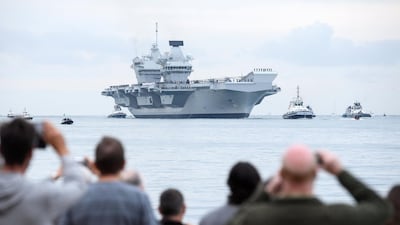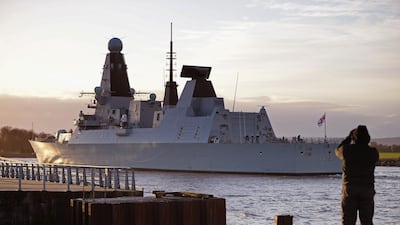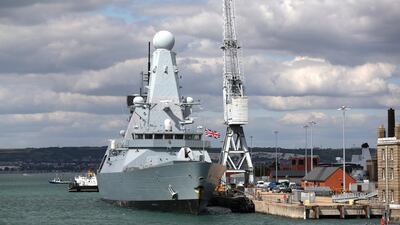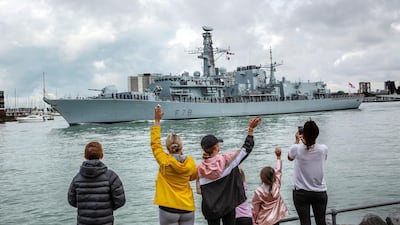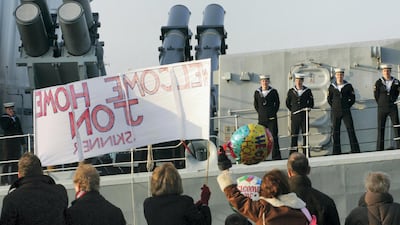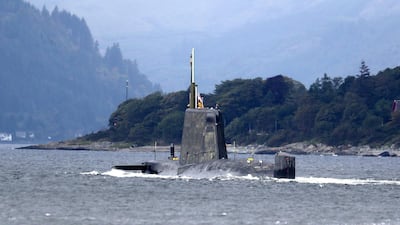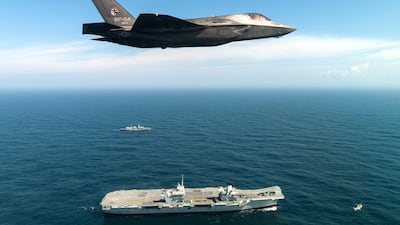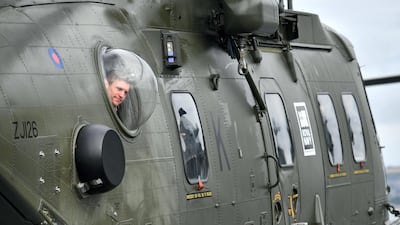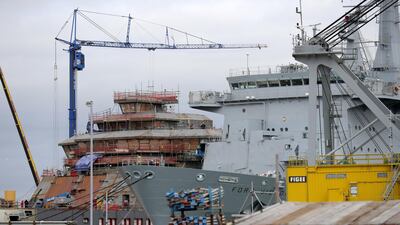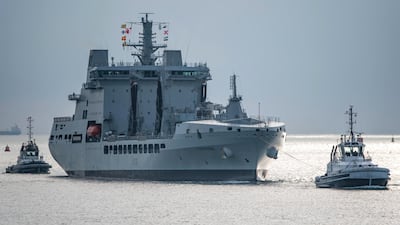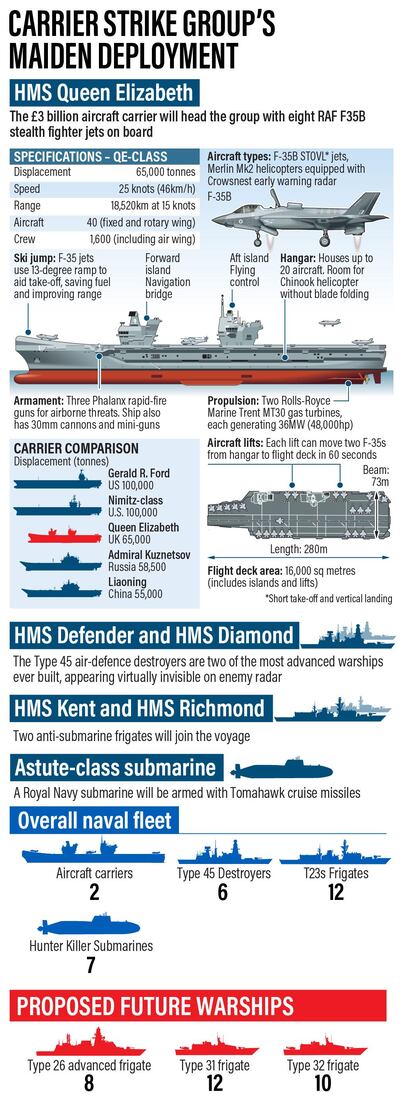Britain set out its stall as a global security player around the glittering assets of a set of new aircraft carriers, but defence experts are increasingly doubtful the deployments can fulfil their promised role.
In a demonstration of the capability that the HMS Queen Elizabeth can bring to bear around the world, London revealed this week that F35B Lightning fighter jets would be used against ISIS.
At the same time the chairman of the Commons Defence Committee told The National that the Royal Navy's new aircraft carriers will not be a potent force unless Britain doubles the number of its warships.
Tobias Ellwood suggested that Boris Johnson's government had failed to recognise the threats "coming over the horizon" that make the world "arguably more dangerous than during the Cold War – yet we're still on a peacetime defence budget".
The former defence minister said while the government projected Britain’s power in words, this was not matched by strength in numbers.
“It’s depressing seeing us talk the talk but not walk the walk,” he said.
The government’s current promised increase of £4 billion ($5.56bn) extra a year was not enough money for Britain’s military to meet the international threats it faces.
Even with the extra resources, shortages are a fact of life. Military estimates put warship availability at one third the total number owing to training and refits, meaning that Britain would have six available out of its surface fleet of 18.
With four Royal Navy warships away for the upcoming seven-month deployment of a carrier strike group to the Pacific, just two warships are available to defend home waters and for Nato operations in the Baltic, Black Sea and Mediterranean. There will also be little capacity to defend allies in the Gulf, Caribbean or British interests.
The navy is forced to rely on its allies for extra naval protection on the missions themselves. The US and the Dutch are sending vessels to operate alongside the Queen Elizabeth in the coming months.
This risks not having direct control of the size of the fleet. Mr Ellwood said the 2011 maritime operations off Libya showed that “not everybody turns out for the fight”. Similarly, if Britain had to defend or recapture one of its 14 British Overseas Territories, as it did in the Falklands in 1982, there was no guarantee that major allies, such as the US, would participate.
The MP listed the main threats as Russia, China, growing extremism in Africa and the Middle East alongside the new challenges in cyberspace.
"The Royal Navy will be overstretched to provide the necessary force protection around the world," the MP said. "We need to double the size of our surface fleet, there's no doubt about it."
China also has two aircraft carriers yet it has a surface fleet of more than 300 warships.
The navy therefore needed to increase to 36 if Britain’s visions of projecting itself as a global sea power are to be fulfilled.
“We have look to a new model of ship, which is seen as a mothership that can take maritime drones and we have to have far greater numbers for a more enhanced maritime presence across the globe,” Mr Ellwood said.
While Mr Ellwood accepted there was "no prospect" of going to 36 warships, the Royal Navy believes it could get up to 24 in a decade when the Type 31 and Type 32 frigates become operational.
The Queen Elizabeth set sail from Portsmouth on Saturday accompanied by two Royal Navy Type-45 destroyers – HMS Defender and HMS Diamond – for air defence, two Type-23 frigates for anti-submarine defence and a hunter-killer nuclear submarine. But it will also be accompanied by an American destroyer, USS The Sullivans, and Dutch frigate Evertsen while visiting India, Japan, South Korea and Singapore.
The carrier group will have eight RAF and 10 US Marine Corps F35B stealth fighter jets, 14 naval helicopters and a company of Royal Marines.
“We can't even muster the ships ourselves and we're having to resort to allies,” Mr Ellwood said. “This particular deployment is all about defence posture and for that you need to be able to support your own carrier.”
The MP also condemned the government for failing to stand up to China by not sending the Queen Elizabeth carrier group through the Taiwan Strait as other allies, such as France, have done. It is understood Whitehall does not want to provoke Beijing and jeopardise trade deals.
“Increasing the size of the surface fleet would make the vision of global Britain more realistic,” Mr Ellwood said. “We need to recognise how uncertain the world is becoming and the opportunities that present themselves that require an umbrella of security around them.
“If we want to enforce international standards, including in the high seas or the South China Sea, then we need a greater force presence than we currently have.”
